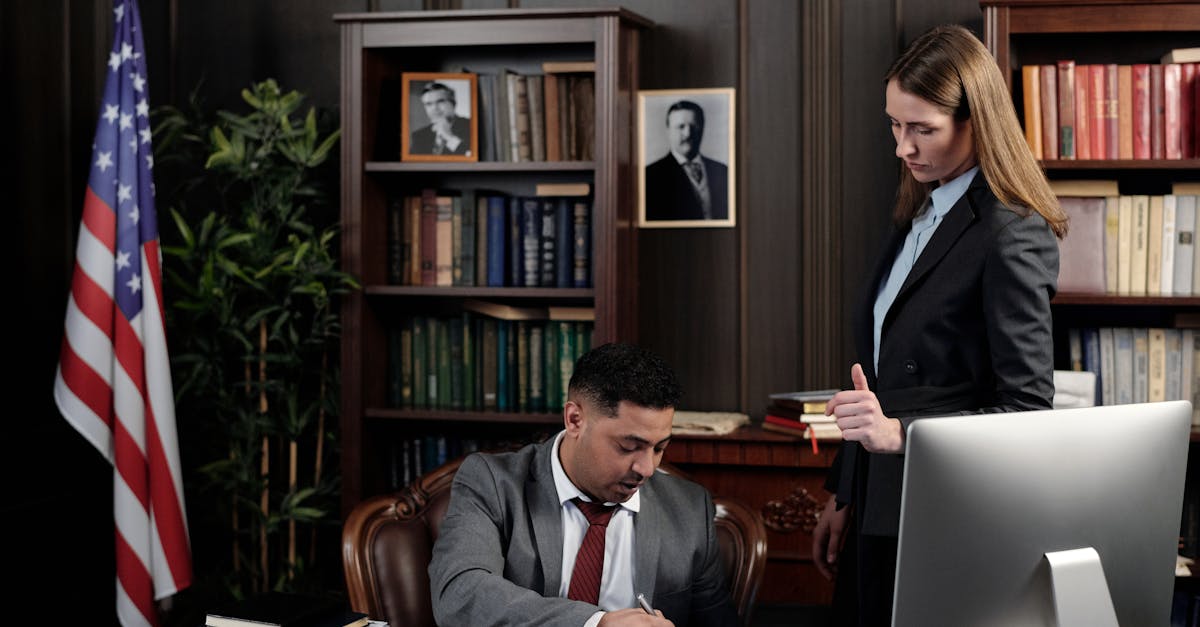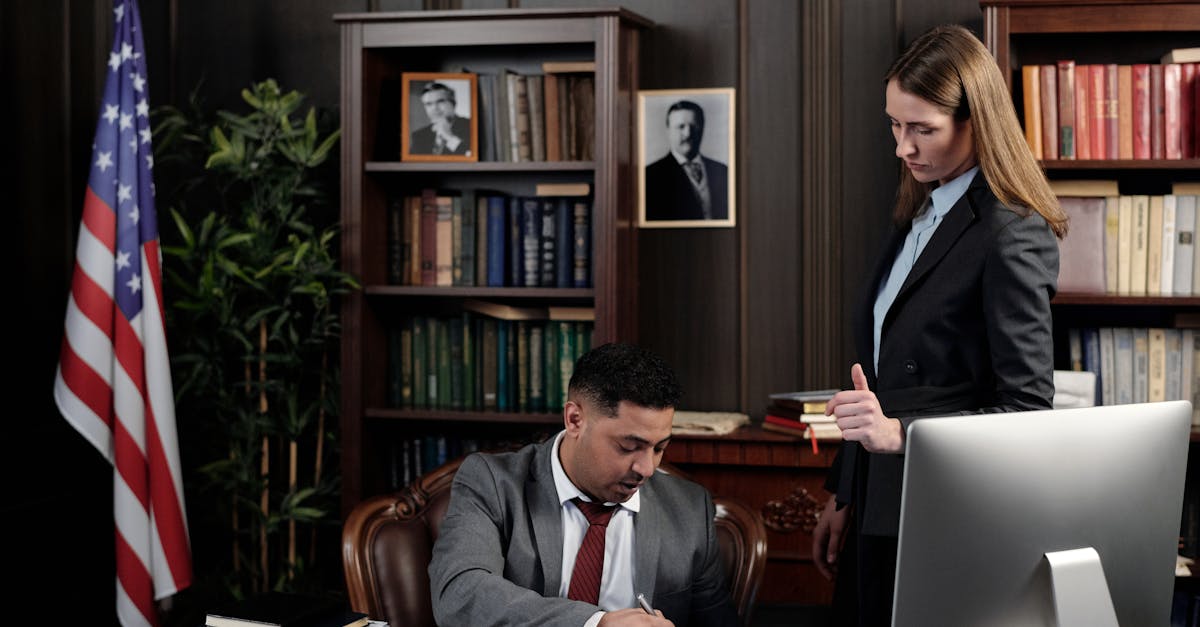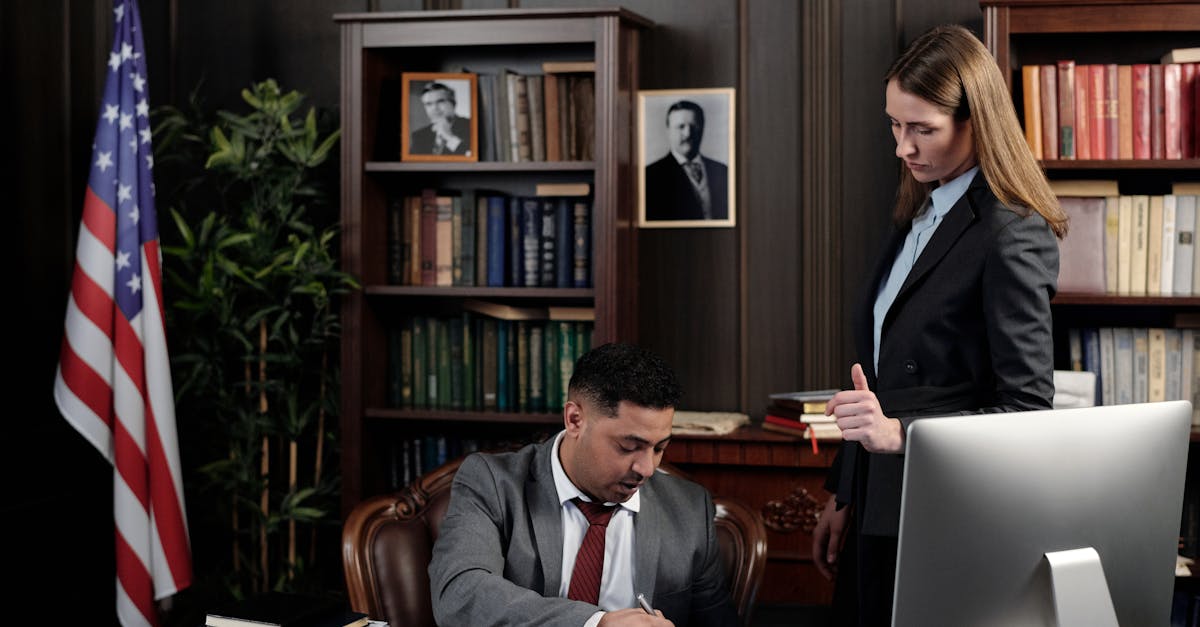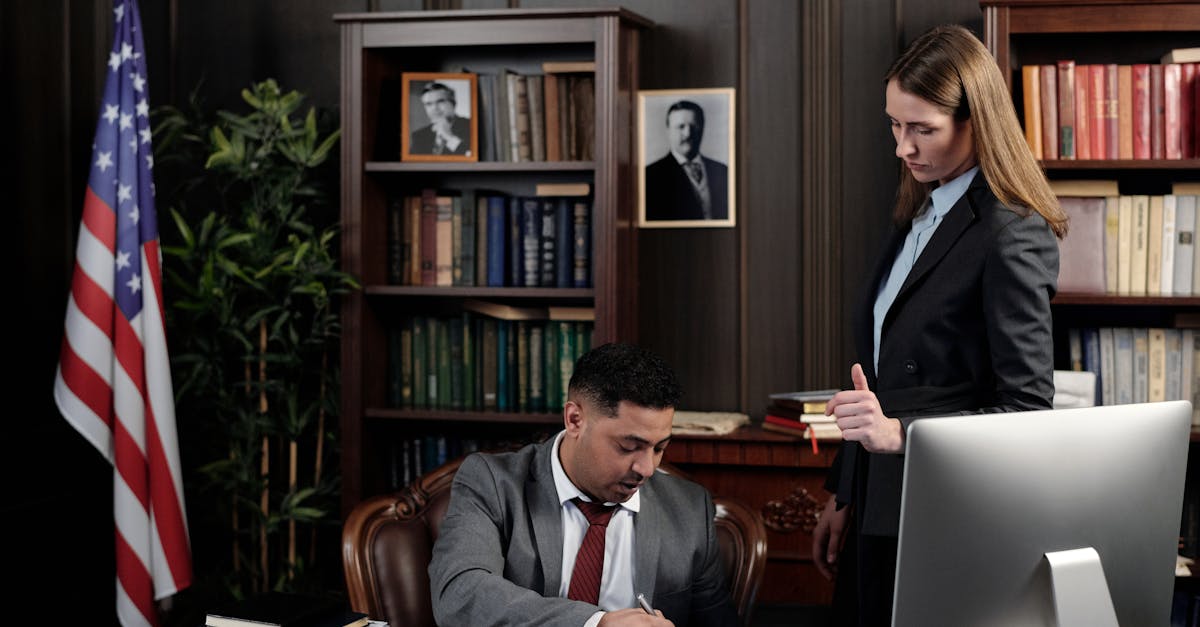Expert Inheritance Solicitors to Guide You Through the Estate Planning Process
Key Takeaways
- Grasping the Function of Inheritance Lawyers
- Frequent Inheritance Associated Concerns
- The Significance of Inheritance Professionals
- Selecting the Appropriate Lawyer for Inheritance Issues
- The Procedure for Managing Inheritance Conflicts
- Expenses and Charges for Inheritance Attorneys
Understanding the Role of Inheritance Solicitors
Inheritance solicitors play a crucial role in navigating the complexities of estate management and the implications of inheritance laws. They provide vital assistance in matters ranging from the drafting and execution of wills to ensuring compliance with the Inheritance (Provision for Family and Dependants) Act 1975. Their expertise helps clients manage the intricacies of inheritance tax and resolve disputes that may arise within families regarding the distribution of estates. Unlike general lawyers, inheritance solicitors specialise in issues related to inheritances, offering tailored advice that considers both family law and the specifics of individual situations. Engaging an experienced solicitor can significantly simplify the process, ensuring that all legal requirements are met and that clients' interests are protected.
What Are Inheritance Solicitors?
Inheritance solicitors are specialised lawyers who provide essential legal advice regarding matters related to estates and property after an individual’s passing. These professionals assist clients in navigating the complexities of inheritance law, ensuring that beneficiaries receive their rightful claims against an estate. They are well-versed in the intricacies of estate planning, which includes drafting wills and establishing lasting power of attorney. Inheritance solicitors also represent clients who may need to engage in litigation or legal proceedings to defend or challenge a will.
These attorneys play a crucial role in advising clients about their legal rights and options in estate matters. They help facilitate communication between parties involved and can guide individuals through the emotional landscape of inheritance disputes. By offering tailored legal recourse, inheritance solicitors strive to resolve conflicts amicably while protecting their clients' interests. Their expertise not only covers claims against an estate but also extends to ensuring proper adherence to legal frameworks governing inheritance.
Responsibilities of Inheritance Solicitors
Inheritance solicitors play a crucial role in navigating the complexities of estate administration. They ensure compliance with relevant legislation, such as the Administration of Estates Act 1925, which governs the distribution of assets. These solicitors assist executors in obtaining a grant of probate, allowing them to legally manage the deceased's estate. They also provide guidance on how to handle gifts that may affect the overall inheritance, ensuring that all actions adhere to laws in England & Wales.
These professionals are adept at drafting deeds of variation, which can alter the distribution of an estate in accordance with the wishes of beneficiaries. In cases where disputes arise, inheritance solicitors represent clients in the Court of Protection, advocating for their rights and entitlements. Their expertise not only simplifies the legal processes involved but also helps prevent misinterpretation of the law, safeguarding the interests of the crown and the beneficiaries alike.
Common Inheritance Related Issues
Inheritance disputes can arise from various issues, often involving the roles and responsibilities of executors in managing probates. In England and Wales, inheritance solicitors play a crucial role in navigating these disputes, especially when offences such as negligence or mismanagement of deeds occur. Disagreements may involve the validity of wills, challenges to discretionary trusts, or claims related to the wealth distribution among family members, including husbands. Legal precedents influence outcomes, as liability can shift depending on the circumstances surrounding the case. Collaborative law offers alternatives for resolving disputes without resorting to lengthy court battles, providing an effective way to address conflicts while preserving relationships.
- Validity of wills often disputed due to lack of witness signatures or mental capacity issues.
- Executor negligence can lead to claims for financial losses incurred by the estate.
- Disagreements about the interpretation of terms within a will or trust document.
- Family tensions escalated by perceived unequal distribution of assets.
- Challenges to discretionary trusts can arise over the appropriateness of beneficiaries.
- Legal fees can accumulate, exacerbating financial strain on the estate and heirs.
- Mediation can offer a cost-effective resolution strategy for inheritance disputes.
Types of Inheritance Disputes
Inheritance disputes can arise from various situations, often stemming from disagreements over the validity of a will or the distribution of assets among beneficiaries. In such cases, inheritance solicitors play a crucial role in navigating the complexities of probate and the jurisdiction of inheritance laws. Disputes may involve claims against the estate, such as those citing the Inheritance Act, or challenges to the roles of executors and administrators. Inheritance dispute solicitors are essential in ensuring that proper inheritance procedures are followed and that all parties are informed of their rights.
Miscommunications or unclear terms within wills can also lead to conflicts. Beneficiaries may contest the intentions of the deceased, leading to an inheritance claim that requires legal expertise. Inheritance tax solicitors may need to be consulted as well, particularly when there are concerns about the tax implications of the estate. Choosing a well-qualified solicitor, such as wills solicitors or inheritance dispute lawyers, is critical in resolving such matters within the inheritance department efficiently and effectively.
When to Seek Inheritance Dispute Solicitors
Inheritance disputes can arise under various circumstances, often necessitating the expertise of skilled solicitors. If you find yourself entangled in a family inheritance dispute that seems unresolved, it is crucial to consult inheritance experts today. These professionals have the specific knowledge to navigate complex legalities surrounding wills and trusts, ensuring your rights are protected during the inheritance dispute claim process. Engaging with inheritance solicitors can provide clarity and direction, especially when dealing with probate matters.
Simple inheritance matters may sometimes escalate into contentious disputes. If you detect potential conflicts or if parties involved are unable to communicate effectively, seeking guidance from inheritance dispute solicitors is advisable. These professionals can assist with inheritance tax services and inheritance tax planning, thus preventing future issues. The right solicitor doesn't just handle legal issues; they also offer support and strategy to help clients achieve a fair resolution.
The Importance of Inheritance Experts
Inheritance experts play a crucial role in navigating the complexities surrounding estates and the associated legal intricacies. Engaging an own expert solicitor can significantly ease the burden on families, especially when dealing with the implications of inheritance tax liability. With the ever-changing landscape of tax regulations, understanding available inheritance tax options, such as exemptions and the inheritance tax threshold, can help mitigate the potential inheritance tax bill on an estate. An inheritance solicitor well-versed in the wills act can provide guidance on optimising estate planning strategies, ensuring that assets are distributed according to the deceased's wishes while minimising tax exposure. Families are better positioned to manage their own estate effectively by seeking expertise from knowledgeable solicitors rather than relying solely on an old lawyer who may not be up to date with current practices.
How Inheritance Experts Can Assist You
Inheritance experts provide invaluable support in navigating the complex legal framework surrounding inheritance matters. They help clients understand their rights and obligations concerning the whole estate, ensuring that all applicable laws are considered. With their legal expertise, these professionals can offer tailored legal representation for clients, addressing specific concerns related to lifetime gifts and the inheritance claims of certain family members.
Their role often involves guiding clients through various legal avenues to resolve disputes effectively. Inheritance solicitors assist with the incorporation of gifts into the estate calculations while ensuring that any legal expenses are accounted for. By offering sound legal guidance, inheritance experts empower clients to make informed decisions about their inheritance issues, ultimately enhancing the likelihood of a fair resolution.
- Inheritance experts provide legal advice tailored to individual circumstances.
- They assist in the communication and negotiation between disputing parties.
- Experts can help in the preparation and submission of necessary legal documents.
- They guide clients through the probate process, ensuring compliance with legal requirements.
- Inheritance professionals can identify and challenge any unfair claims made against the estate.
- They offer support in valuing estate assets to ensure accurate assessments.
- Inheritance experts can represent clients in court if disputes escalate to litigation.
The Difference Between Lawyers and Inheritance Experts
Inheritance solicitors specialise in navigating the complexities of estate affairs and ensuring that legal principles are adhered to throughout the process. These experts possess a deep understanding of effective estate planning and the intricacies involved in issues such as gifting or amendments to wills. They provide legal help tailored to the unique dynamics of family members and relatives, ensuring that the intentions of the deceased are honoured while addressing concerns of all parties involved, including spouses.
Expert lawyers differ from general solicitors in that they focus specifically on inheritance-related matters and probate registry processes. Their specialised knowledge allows them to develop robust legal strategies tailored to the estate value and the specific circumstances of each case. Whether dealing with disputes over inheritance or providing guidance on appropriate amendments, these professionals help ensure fair resolutions among family members, fostering harmony during difficult times.
Choosing the Right Solicitor for Inheritance Matters
Selecting the right inheritance solicitors is crucial to navigate the complexities surrounding legal matters related to inheritance. Legal experts play a pivotal role in ensuring that the wishes of a deceased family member are respected, while also adhering to legal requirements and standards. It is essential to consider the solicitor’s experience with cases involving subsequent amendments to wills or provisions for a spouse or other family members. Law firms that specialise in inheritance disputes often have established associations with experts in the field, offering clients comprehensive support throughout the process. Asking pertinent questions regarding their approach to legal matters will help in making an informed decision to secure the best possible outcome.
Key Factors to Consider
Selecting the right inheritance solicitors requires careful consideration of several factors. A comprehensive understanding of your circumstances is essential, especially if you are a primary beneficiary facing contentious probate claims. Look for solicitors experienced in handling cases that involve the complexities of family relationships, particularly when grandchildren or other beneficiaries may have differing opinions. This expertise can significantly affect the resolution of disputes and the overall dynamics of familial interactions.
Another vital aspect to examine is the fee structure of the inheritance solicitors. Transparency regarding expenses is crucial to avoid unexpected costs later on. Solicitors who employ collaborative law approaches may offer more flexible arrangements that can mitigate contentious probate situations. Evaluating their willingness to engage in mediation and alternate dispute resolution methods can also be beneficial, as it reflects their commitment to resolving issues amicably.
Questions to Ask Potential Solicitors
Selecting the right inheritance solicitors involves crucial questions that can clarify their suitability for your specific needs. Inquire about their experience with cases similar to your own, especially if you are dealing with a claim involving the same family or a complex legal challenge regarding the crown. Understanding their familiarity with relevant court rules and how they apply to your personal circumstances can provide insight into their capabilities. It’s also essential to discuss any outstanding bills related to the legal work they will undertake on your behalf.
Discussing the basis of their fees is fundamental to ensure transparency throughout the process. Ask potential legal representatives about their payment structures and whether they charge an hourly rate or a fixed fee for inheritance matters. Understanding their approach to handling claims and their strategies in navigating disputes can help you gauge their effectiveness. A local law firm may offer more personalised guidance, making it vital to determine their commitment to addressing your unique inheritance situation.
The Process of Handling Inheritance Disputes
Handling inheritance disputes involves a detailed understanding of the legal landscape surrounding post-death estate planning. Inheritance solicitors play a crucial role in guiding homeowners through the complexities of contentious probate disputes. Their responsibilities include assessing the gross estate value and identifying the interests of all parties involved, ensuring that the legacy left behind is preserved according to the deceased's wishes. Drafting necessary documentation and advising clients on their legal rights are essential tasks for these probate specialists. By exploring various avenues for resolution, inheritance solicitors strive to achieve a fair outcome that respects the intentions of the deceased.
Steps Involved in an Inheritance Dispute
An inheritance dispute often initiates with the client seeking guidance from inheritance solicitors. These professional law practitioners assess the specifics of the case, considering factors such as whether there are arguments regarding the validity of a will or claims made by an unmarried partner, parents, or an ex-spouse. Depending on the circumstances, different available avenues may be explored, including negotiations or a contentious probate process. The solicitor's role includes applying for a grant of probate if necessary, allowing them to act on behalf of the estate.
Identifying the steps involved in an inheritance dispute is crucial for a smooth resolution. The solicitor will first gather all relevant information, including the deceased's financial affairs and details about any potential heirs. Client interests are paramount, guiding each step in the process, from seeking permission for relevant documents to presenting the case effectively. In more complex instances, contentious probate teams may become involved, focusing on the disputes that arise over a lifetime of relationships, ensuring all parties are heard throughout the process.
| Step | Description | Involved Parties |
|---|---|---|
| 1. Initial Consultation | Client meets with inheritance solicitors to discuss the case specifics. | Client, Inheritance Solicitor |
| 2. Gathering Information | Relevant documents are collected, including financial affairs and potential heir details. | Solicitor, Executors, Heirs |
| 3. Validating Claims | Assessing the validity of wills and claims made by interested parties. | Solicitor, Claimants, Beneficiaries |
| 4. Negotiation or Litigation | Possible negotiations with involved parties or initiation of contentious probate if necessary. | Solicitor, Claimants, Beneficiaries, Courts |
| 5. Resolution | Finalizing the dispute resolution and executing the distribution of the estate. | Solicitor, Executors, Beneficiaries |
Mediation and Alternative Dispute Resolution
Mediation serves as a valuable alternative to the courtroom for resolving inheritance disputes. Involving inheritance solicitors in this process can help facilitate communication between potential beneficiaries, aiming for a mutually agreeable settlement. Legal professionals experienced in mediating inheritance issues are equipped to navigate complex regulations and can draft necessary legal documents to formalise any agreements reached. For many homeowners, the prospect of avoiding lengthy legal processes can alleviate stress and financial burden associated with bills accrued during court proceedings.
Alternative dispute resolution offers a more collaborative approach to settling inheritance matters. By engaging a firm that specialises in these resolutions, chosen beneficiaries may find that their disputes can be resolved more efficiently. This method often leads to outcomes that reflect the interests of all parties involved, reducing the need for a court case. Inheritance solicitors play a critical role in ensuring that the legal process proceeds smoothly, safeguarding the rights of all participants while seeking a fair resolution.
Costs and Fees for Inheritance Solicitors
Understanding the costs and fees associated with inheritance solicitors is crucial for clients navigating such cases in Wales. Beneficiaries often seek clarity on the financial provisions required before engaging in proceedings. Different firms may have varied fee structures based on their expertise, with some charging hourly rates while others may opt for fixed fees depending on the complexity of the claims involved. Clients should be aware of the grounds on which inheritance solicitors charge, as these can significantly affect the total costs. Seeking upfront guidance from solicitors about potential expenses can help in planning and managing expectations throughout the process.
| Fee Structure | Typical Cost | Services Included |
|---|---|---|
| Hourly Rate | £150 - £300 | Advice, consultations, document preparation |
| Fixed Fee | £500 - £5,000 | Full representation, claims handling |
| Percentage of Estate Value | 1% - 5% | Comprehensive estate management, litigation |
| Initial Consultation Fee | Free - £100 | Evaluation and preliminary advice |
Conclusion
Understanding the role of inheritance solicitors is crucial for navigating the complexities of inheritance disputes. These professionals provide essential representation and advice, helping clients understand their rights and responsibilities. An effective solicitor conducts thorough investigations into the particulars of each case, ensuring that all aspects of the situation are respected and addressed. Individuals need to ask the right questions and consider their options carefully, as the creation of trust and clarity is vital in these often emotionally charged matters. By seeking the expertise of inheritance solicitors, clients can effectively manage disputes and work towards a favourable resolution.
FAQS
How can inheritance solicitors assist in resolving family inheritance disputes and ensuring compliance with legal standards?
Inheritance solicitors play a vital role in addressing family inheritance disputes by employing a solid legal strategy and guiding clients through the complexities of law. They help individuals make a claim against an estate, navigate inheritance tax mitigation, and select the chosen solicitor who best fits their needs. Additionally, probate solicitors can further facilitate the resolution process by ensuring all actions adhere to the necessary legal standards.
What role do inheritance disputes solicitors play in resolving conflicts related to family inheritances?
Inheritance disputes solicitors are essential in addressing conflicts that arise during the distribution of family inheritances. They provide expert guidance on the legal implications of inheritance laws, help negotiate settlements between parties, and represent clients in court if necessary. Their experience ensures that all legal requirements are met, facilitating a smoother resolution to disputes related to inheritances.
How do inheritance solicitors provide guidance on the legal implications of estate planning and wills?
Inheritance solicitors offer expert advice on the legal implications of estate planning and wills, helping clients understand their rights and responsibilities. They assist in drafting wills, ensuring they are legally valid and compliant with current laws, and also provide support in estate administration, ensuring that the distribution of assets follows legal requirements.
What factors should I consider when choosing inheritance solicitors to handle my family's estate planning needs?
When choosing inheritance solicitors, consider their experience with estate planning, their understanding of relevant laws, and their ability to communicate effectively. It's also important to check for reviews and industry recognition to ensure they can meet your family's estate planning needs comprehensively.
What qualifications should I look for in inheritance solicitors to ensure they are competent in handling complex estate matters?
When searching for inheritance solicitors, it's essential to consider their qualifications, including their educational background, professional accreditations, and experience in managing complex estate matters. Competent inheritance solicitors will typically have a solid understanding of legal regulations regarding estates, wills, and inheritance laws, ensuring they can effectively serve your family's needs during estate planning or dispute resolution.





















































































































































